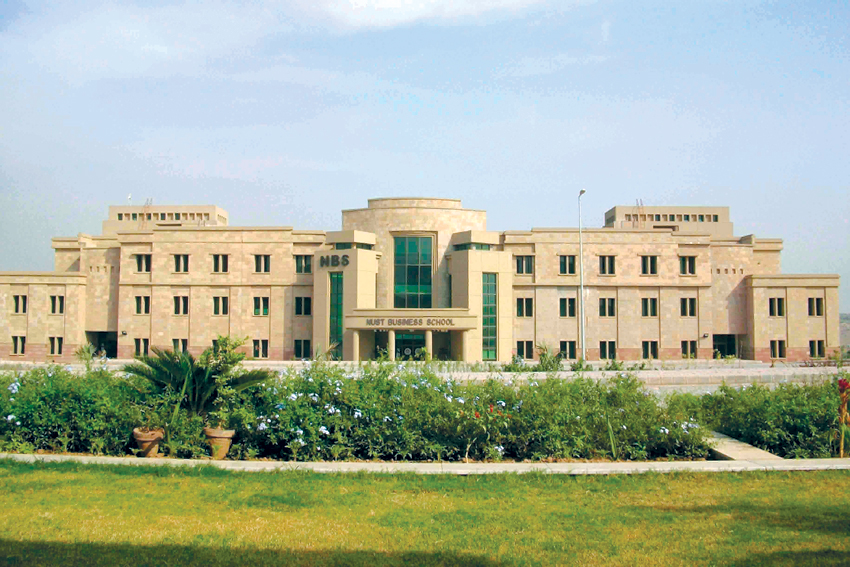Education, one of the central concerns of Pakistan’s Vision 2025 plan, is becoming more accessible to population, and higher education in particular is moving the country forward in science and technology

A mong the ambitious goals that Pakistan’s Prime Minister, Nawaz Sharif, has set for his country, a strong focus on the accessibility and quality of education is top of the list. Access to higher education is expected to increase to 12% over the next decade, while the number of PhD holders in Pakistan will more than double, from 7,000 to 15,000. Plans are also afoot to make vocational training more responsive to emerging technologies and to the changing needs of the private sector.
The prime minister’s plan, called Vision 2025, also calls for the promotion of improvement in the quality of science and technology education, two areas in which the country’s educational institutions are already quite strong. Pakistan is among the top 10 countries in the world for its number of scientists and engineers, according to Engineer Muhammad Asghar, Rector of the National University of Science and Technology (NUST) in Islamabad.
Mr. Asghar gives much of the credit to the Higher Education Commission (HEC), established in 2002. “After its establishment, HEC promoted the research culture and valued creativity. The research and creativity which were never given importance in the past have now become so indispensable that one cannot survive in the university without it,” he says. “Moreover HEC emphasizes on the quality and relevance of our education and believes in increasing the access to education for all.” The commission, he adds, “believes in increasing access to higher education… [the rate] was 2.6% in 2002 and is about 10% today of the university-aged population.”
To date Pakistan has lagged behind regional peers in taking advantage of the new growth opportunities created by technological advances, particularly in ICT. But many of the foundational factors are in place now to seize the opportunity going forward. Increased investment in higher education has created an opportunity to leverage science and technology for a knowledge economy. As part of its vision, the government aims that every school, college and university will be digitized and computerized by 2025.
NUST is an example of the success experienced by higher education institutions in Pakistan in recent years. When Mr. Asghar became the rector eight years ago, the student population was 5,900; today, it is more than 15,000. The university admits students based on merit alone, which gives the student population a mix of quality from all socioeconomic classes. “We select one out of every 35 candidates, and they are the best of the best,” Mr. Asghar shares.
Just 24 years old, the university is often recognized for the quality of its education. Q/S Quacquarelli Symonds, a UK-based ranking agency, recently named NUST among the top 500 world universities. It is the only Pakistani university to be consistently placed on this list since 2007. It is ranked among the top 120 universities in Asia, and among the top 100 universities from 22 developing nations.
COMSATS Institute of Information Technology is another higher education success in Pakistan. It opened in 2000 in Islamabad with just 320 students, but today has 40,000 students and 3,500 faculty members across eight campuses, with plans in development for starting a distance education program via a virtual campus.
One of the institute’s areas of focus is improving its professors’ education. Around 1200 of its faculty members have PhDs, and the institute expects to one-day reach 6000 PhDs, so it is turning to a global approach to educating its faculty.
According to Junaid Zaidi, the Founder Rector of COMSATS, “We are looking towards the developed and advanced countries to train our people, either in Pakistan or in an advanced country like the USA, Canada, the UK, and all European countries.”
While Mr. Zaidi recognizes some of Pakistan’s current limitations in its product output, he knows that higher education is the key to improvement: “We have started producing skilled graduates, and I am very optimistic that in the next five years, the situation will dramatically change.”
Partnerships with U.S. institutions
The U.S. is partnering with Pakistan in number of areas to support its economic development, and indeed bilateral cooperation in education is key to this partnership. In June, it was announced that four Pakistani and three U.S. universities would collaborate on a research project called Center for Advanced Studies (CAS) in order to find innovative solutions to water, agriculture and energy challenges for Pakistan.
The United Stated Agency for International Development (USAID) and the HEC are investing $127 million in the project, which will train about a thousand graduates in education, business and governance by applying research solutions in the water, power and agriculture sectors.
NUST will participate in the energy department of CAS, along with the University of Engineering and Technology, Peshawar and Arizona State University. Other participating universities include the University of Agriculture, Faisalabad and the University of California, Davis in the agriculture sector, while Mehran University of Engineering and Technology, Jamshoro and the University of Utah will collaborate on finding solutions to challenges in the water sector.
Speaking about the U.S.-Pakistani education partnership, Mr Asghar says, “Pakistan has been a longtime ally of the U.S. and that gave us the opportunity to benefit from that educational system in the past. And we don’t have any second opinion about USA’s education being the best one.
“Therefore, we would like to benefit from this leading system. We have visited U.S. many a times and our observation is that at the individual level, excluding politics, Americans are friendly and very good human beings. At the same time Pakistanis also possess the same traits. Hence they study and work together in a very conducive environment. In engineering and technology we follow the U.S. system.”
0 COMMENTS